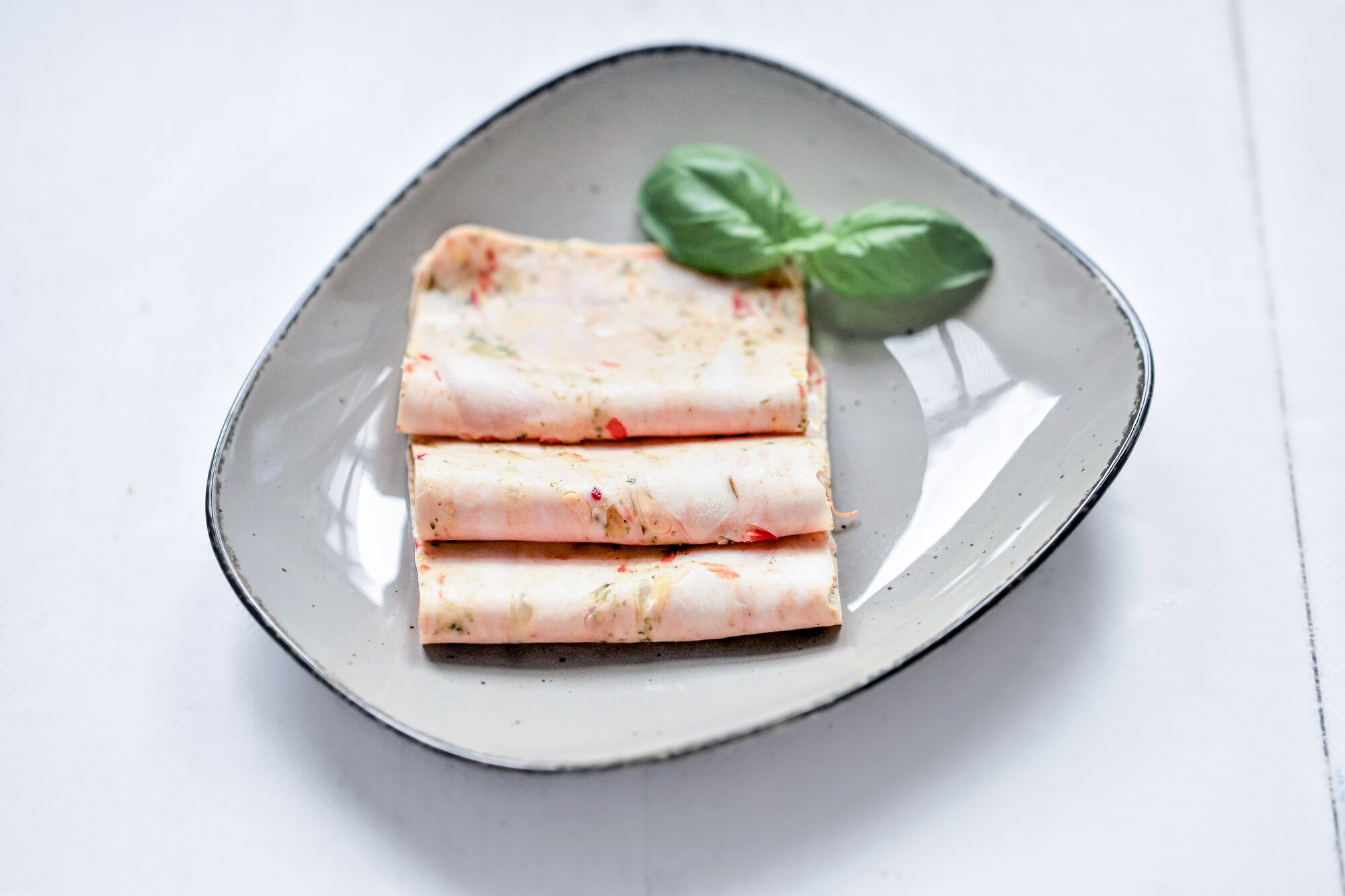Meat in the middle of the plate, vegetables on the side: a familiar combination that now offers new possibilities in the market for alternative meat products.
These have special appeal for consumers who want to eat less meat in general, but are unwilling to compromise either on flavour or on consistency.
“We see big opportunities for hybrid products, since they offer many benefits,” explains Katharina Burdorf, Team Lead Product Management Hydrosol.
“Vegetables, legumes and mushrooms offer nutritional advantages for one thing. And for another, they cost less than meat, so recipes can be more economical.” This is a strong motivation given the current economic situation.
It is therefore not to be wondered at that according to market research, 58% of consumers would try products containing a mix of animal and plant proteins.
Hydrosol has developed the PLUSmulson series stabilising systems for hybrid meat products and cold cuts. They are simple to use and easy to integrate into existing production processes.
The meat and vegetable proportions can be varied flexibly. “In our sample recipes we use 60% meat and about 25% vegetables, but increasing the proportion of vegetables is no problem,” says Burdorf.
Simple manufacture and nutritional benefits
By adjusting the flavourings and types of meat, the system enables a wide range of hybrid products, from burgers, meatballs, nuggets and schnitzel to fish products.
Production is done on conventional machinery, by mixing chopped meat and vegetables – like carrots, broccoli and bell peppers – with other ingredients like seasonings and the stabilising system.
The mixture is then formed into burgers, nuggets or schnitzel. Thanks to its good binding ability, the stabilising system ensures good structure in the final products even with high vegetable content. The system is free from E-numbers so it is ideal for clean-label products.
In addition, the hybrid products, whether sausage or meat alternatives, have a number of nutritional benefits. They contain less fat and cholesterol than conventional meat products, but have the same amount of protein.
Depending on the type of vegetables used, they can also have high fibre content. A big advantage for parents is that kids get an extra serving of vegetables with these hybrid products.
Lower CO2 emissions and a smaller ecological footprint are added benefits. And then there are business advantages for meat producers – hybrid products are a good way to win back lost market share.
The future of hybrid products
Hybrid products put the focus more on flavour, health and convenience, but they take some explaining, as Burdorf relates: “Sales success depends greatly on the marketing communication."
"It’s important to point out the advantages of the products, as otherwise it can seem that the vegetables are just there to stretch the meat for cost reasons. Proactive communication can prevent that.”
What’s more, hybrid products offer strong innovation potential, and open up new possibilities in combination with cultured meat. “For cost reasons, most companies will start by taking hybrid products to market,” says Burdorf.
“Plus, combinations of cultured cells and plant-based proteins as a rule have higher consumer acceptance.”
At any event, the example shows the possibilities that hybrid meat offers for marketing. The preparation potential ranges from economy recipes to high-end products, from gourmet creations to kids’ foods.

